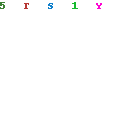(Yes, some ideas -- the A-11 offense, for example -- are almost examples of trying too hard. But at least it's outside-the-box thinking.)
The remnants of the Western Collegiate Hockey Association met this week in Detroit, with plenty of items on the agenda. Due to be discussed were, among other things, a playoff format, tournament site, expansion plans, the regular season schedule format once the league goes to nine teams, and other stuff.
The league put out a press release after the meetings were concluded (no, the press release wasn't put out a month after the meeting, at least as far as we know).
While I tend to disagree with a 28-game schedule format after talking to a bunch of people about the issue in the last 14 months, I can live with it. The eloquent Chris Dilks provides probably the best argument in favor.
I'd rather watch two games against league rivals competing for points to win a league championship than watch two teams that play once a decade fighting it out for hundredths of a percentage point in some convoluted math formula for a spot in a comically short postseason tournament. Non-conference games are never as hard-fought and entertaining as conference games.
I still don't think I agree from a logistical, "How can we get more teams in the tournament?" sense. But Chris is right when he says non-conference games aren't normally as much fun for fans.
The really controversial part of the WCHA plan was revealed later in the week. And, boy, did Bruce McLeod and company hit a home run if they were trying to irk his league's fans.
For this, we'll call on Jack Hittinger of the .Bemidji Pioneer
Bemidji State athletic director Rick Goeb Thursday confirmed that all nine of the league’s teams would make the playoffs and that the regular-season champion would receive a bye into the Final Five.
That much could have been gleaned from the press release the league released Thursday afternoon.
What wasn’t on the press release, however, was the fact that the Alaska schools would be playing each other every year – regardless of league finish – unless one of them got that first-round bye.
Yikes.
Minnesota State athletic director Kevin Buisman told my buddy Shane Frederick that "nothing is forever," and there are indications this plan is not at all a permanent solution.
We can only hope.
I'm not a financial expert, and I'm not one for telling other people how to spend their money. That said, if the decision has been made to maintain a hockey program and form this league, people need to understand that competitive equity matters. So does integrity.
And a nine-team league where the No. 6 team could get home ice advantage in the first round, while the No. 3 team is on the road ... well, that's not right. Or smart.
I certainly can understand the desire to save a chunk of money on plane tickets, but if money is that tight, the WCHA should stop looking at the XCel Energy Center for its postseason tournament. It's better off at campus sites until the league can gain some footing. It's the best way to sell tickets, right?
In all seriousness, cost-cutting is certainly key here, but the price being paid with this idea -- postseason tournament integrity -- is way too high.
I'm hopeful the league can work this out and create a situation where it can be financially viable and maintain a sort of competitive balance.
The other playoff proposal -- the top seed gets a bye to the WCHA Final Five -- is interesting. If I were a coach, I wouldn't be a huge fan of a weekend off before I play a Friday semifinal game that could decide my NCAA chances (I do believe there will be years where the WCHA is a one-bid league, and the top seed needs to win the tourney to secure its spot). Perhaps there's a way around it, like some sort of deal with the NTDP that allows the Under-18 team to play the league champion at least once on that off weekend?
(That's out of my mind, not anyone else's. I'd consider it if I were the WCHA, only because it would remove a bye week that could cause rust at a really bad time for rust. The bye week before the Frozen Four is different, because everyone has it.)
There's more to come. The WCHA is going to listen to Alabama-Huntsville, and with leagues now setting up at fewer than 12 teams, it'll be interesting to see if anyone outside the 58-school "fraternity" looks to add Division I hockey.
The WCHA could easily alleviate some cost concerns if someone in the upper Midwest adds the sport, because the more teams in the WCHA, the fewer that have to travel to Alaska twice a season. That would help reduce some cost. UAH could help, too, thanks to speculation it would help subsidize travel for the seven teams that would head to Huntsville during the season.





